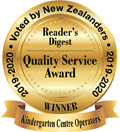Transport
Most people in New Zealand find driving easier and more convenient for much of their getting around. In rural areas, it is often the only option. Although public transport is available in the larger cities and suburbs:
Public Transport:
All New Zealand cities and most towns have buses, Auckland and Wellington both have city-suburban rail services. New Zealand is a land of wide-open spaces and low population density. This makes it impractical to provide the extensive public transport systems you find in more built-up and crowded cities. However, there are extensive bus services that can take you to just about anywhere you want to go: https://www.newzealandnow.govt...
Car:
Take the shuttle, bus or taxi (cab) from the airport when you first arrive.
You can also:
- purchase privately sold cars: http://www.nzta.govt.nz/vehicl...
- purchase cars on websites like Trade Me Motors: http://www.trademe.co.nz/motor...
- purchase cars from a second-hand car dealer: https://consumerprotection.gov...
Any car you buy must have:
- check NZTA’s advice on what to look out for in terms of safety and mechanical condition.
- must have a WoF (Warrant of Fitness, the Government’s safety check).
- should be currently registered with the New Zealand Transport Agency (NZTA)
Insurance:
Vehicle insurance is not compulsory in New Zealand. However, ‘third party insurance’, which insures you against having to personally pay the cost of damage to someone else’s vehicle, is recommended as a minimum. The main insurance companies in New Zealand are Tower insurance, AMI insurance, State insurance and AA insurance. For more information click on the link below: http://www.nzta.govt.nz/licenc...


